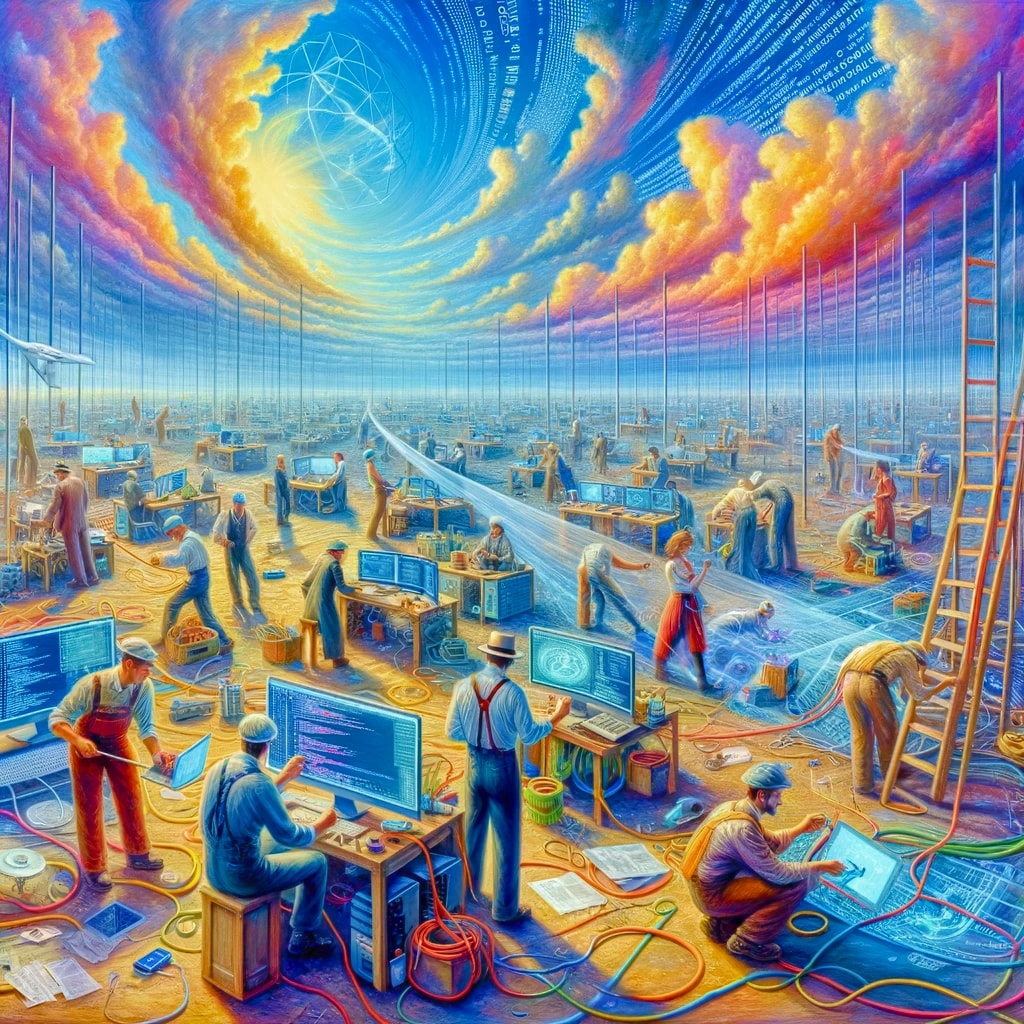Welcome, and thank you for being part of the MyZucoins community! Let’s get into an interesting piece of crypto, finance, or tech news to stay ahead.

Could Crypto Save The Internet? Chris Dixon’s New Book “Read Write Web”
Andreessen Horowitz partner Chris Dixon presents a compelling case for blockchain technology as the next evolutionary step for the internet in his new book Read Write Web, aimed at creating a more balanced online world.
Since its inception in 2009, Andreessen Horowitz (often shortened to A16Z), has been at the forefront of venture capital, backing some of the most transformative companies in technology and the internet.
The firm’s investment portfolio includes groundbreaking deals with companies like Facebook, Twitter, Airbnb, and Coinbase, marking significant bets on social media, the sharing economy, and cryptocurrency platforms that have defined the digital age.
Notably, their early investment in Coinbase, one of the first major cryptocurrency exchanges, underscored the firm’s foresight into the potential of blockchain and crypto markets.
Over the years, Andreessen Horowitz has launched several multi-billion dollar funds, including dedicated crypto funds, reinforcing its commitment to investing in the next generation of technology startups and solidifying its position as a pivotal force in the evolution of the tech landscape.
Unlike the speculative frenzy that marked the crypto boom, Dixon’s vision is grounded in utilizing blockchains to decentralize power and return control to users.
His experience in the tech industry, coupled with his role in a major crypto fund such as A16Z, lends credibility to his argument against the monopolization by a few tech giants.
Dixon advocates for protocol networks, or blockchains, which inherently prevent the exploitation and manipulation seen in current centralized models by embedding rules within the software itself.
Dixon’s perspective is shaped by the internet’s early promise of equal opportunity and the subsequent dominance of a few corporations.
His concern revolves around the monopolistic control over the internet, which stifles innovation and equity.
Dixon’s book, “Read Write Own,” suggests that blockchain can counteract this by enabling a more dynamic and competitive online environment, offering creators and small businesses a fairer chance to thrive.
This approach contrasts with the current situation where large platforms disproportionately benefit at the expense of individual creators and entrepreneurs.
Dixon’s argument extends beyond the financial implications of blockchain to its potential to encourage a more vibrant and inclusive digital economy.
He highlights the stark disparities in earnings among artists on platforms like Spotify to illustrate the need for a system that better distributes value.
By advocating for blockchains, Dixon envisions a future where the internet operates on a foundation of shared ownership, incentivizing contributions and innovation.
Dixon’s book reiterates the distinction between the speculative aspects of cryptocurrency and the foundational technology of blockchains.
He separates the “casino” mentality of rapid gains from the “computer” aspect of building a robust, equitable internet infrastructure.
This nuanced view encourages a reconsideration of blockchain’s potential beyond mere investment vehicles, emphasizing its role in shaping a more decentralized and fair internet landscape. Read more here.
How Is Zucoin Fostering An Open Ecosystem By Focusing On Decentralization?
Andreessen Horowitz’s journey from backing pivotal companies like Facebook and Coinbase to Chris Dixon’s advocacy for a blockchain-powered internet in “Read Write Web” underscores a seismic shift towards decentralization and equity online.
It touches on both big-picture concepts and practical use cases, not to mention thoughts and ideas that many deep within the industry might see, but perhaps those not in the industry can’t yet see.
It’s a book from a long-term prominent figure in the crypto industry, who’s perspectives are well-considered and mirror many of the topics we cover here at MyZucoins.
Zucoins, by design, embodies the principles Dixon champions.
Unlike the speculative frenzy that often shadows the crypto domain, Zucoins emphasizes practical utility and productive engagement within its ecosystem.
Its underlying Splitchain architecture is being tailored to discourage centralization, a common pitfall that stifles innovation and concentrates power within a select few entities in the digital space.
This commitment to decentralization resonates deeply with Dixon’s critique of the monopolistic tendencies that have come to define the current internet landscape.
The strategic underpinnings of Zucoins are evident in its approach to fostering an open ecosystem.
By leveraging Splitchain’s all-new approach to distributed ledger technology, Zucoin’s working to ensure transparency and fairness, enabling users to partake in a digital economy where individual value, opportunity and effort are encouraged.
A solid foundation should allow for all kinds of experiments and opportunities to form atop Splitchain.
A mental shift away from centralized control is crucial in dismantling the barriers that currently hinder creative and economic opportunities for the masses online.
“For to be free is not merely to cast off one’s chains, but to live in a way that respects and enhances the freedom of others.” —Nelson Mandela
Centralized control often forms because decentralized systems are too complex and too disorganized.
In some ways, Splitchain has to have many of the benefits, or at least close to it, of a centralized platform, such as speed and simplicity, while being increasingly decentralized.
It’s a target that involves Zucoin doing its part to rebuild the next generation of the internet’s web, Web3, as a space where everyone has even more opportunity to succeed.
If you liked this newsletter, please forward it to someone who might like it too.
You can also donate here or even buy some Zucoins. Every little bit helps us improve.
What did you think of this newsletter? Reply to send us feedback on what you liked or want to see featured more. There’s more coming, so stay tuned.
—
All the best,
—Rob
MyZucoins
Disclaimer: Of course, this is not advice, financial or otherwise. It’s also important to consider the risks and challenges associated with any potential benefits.